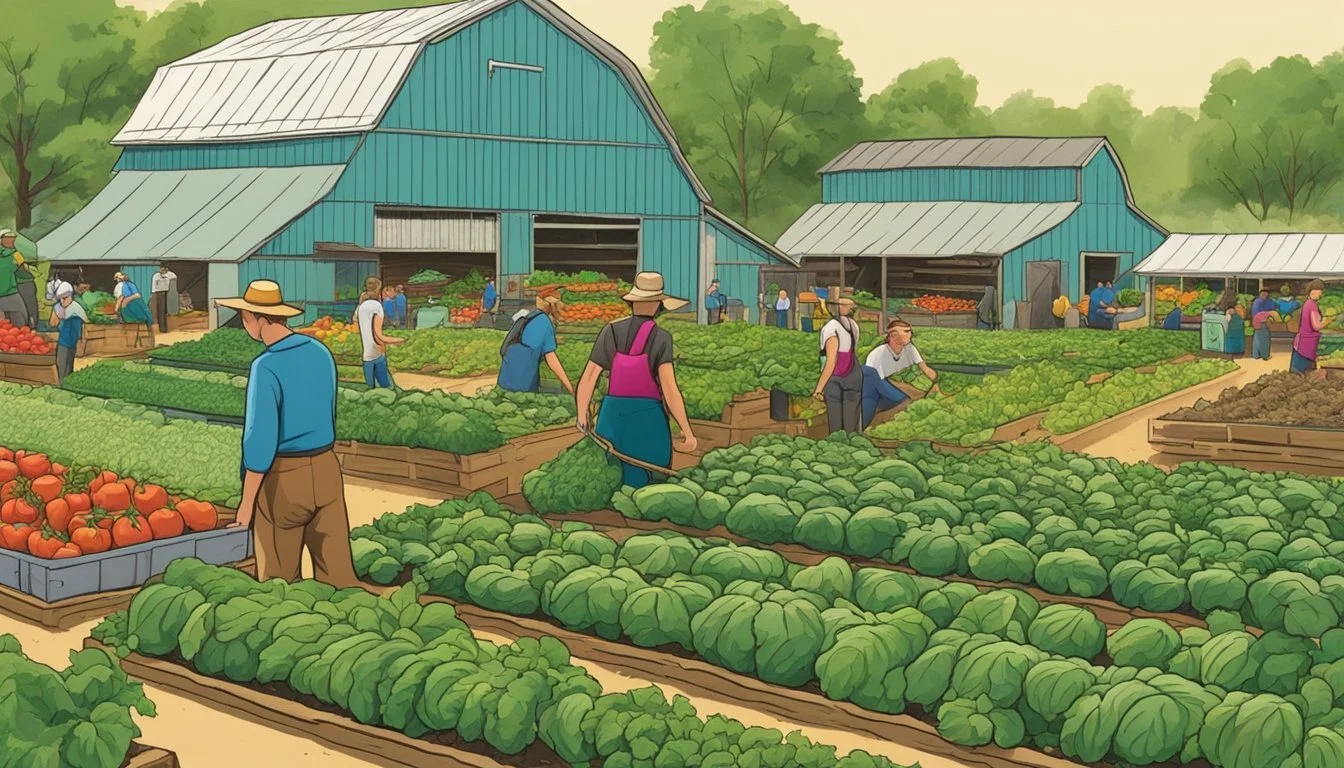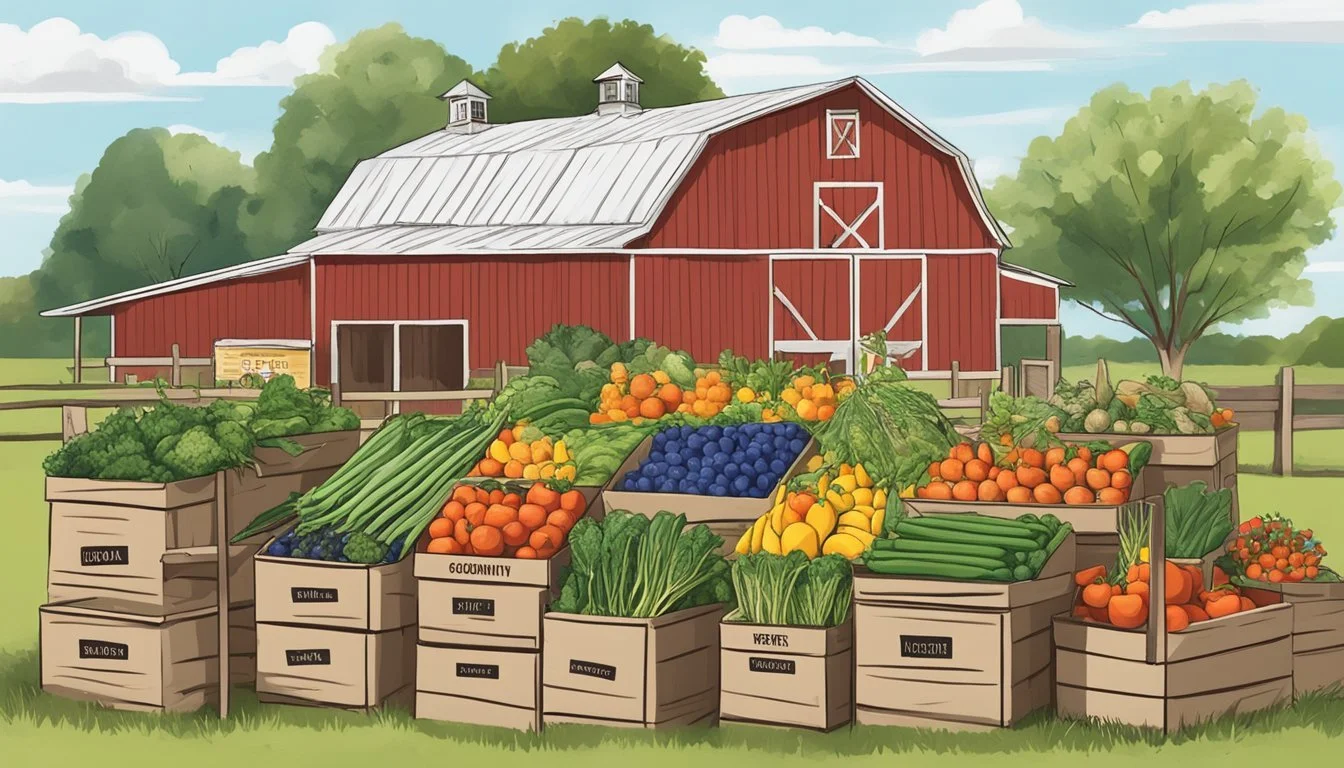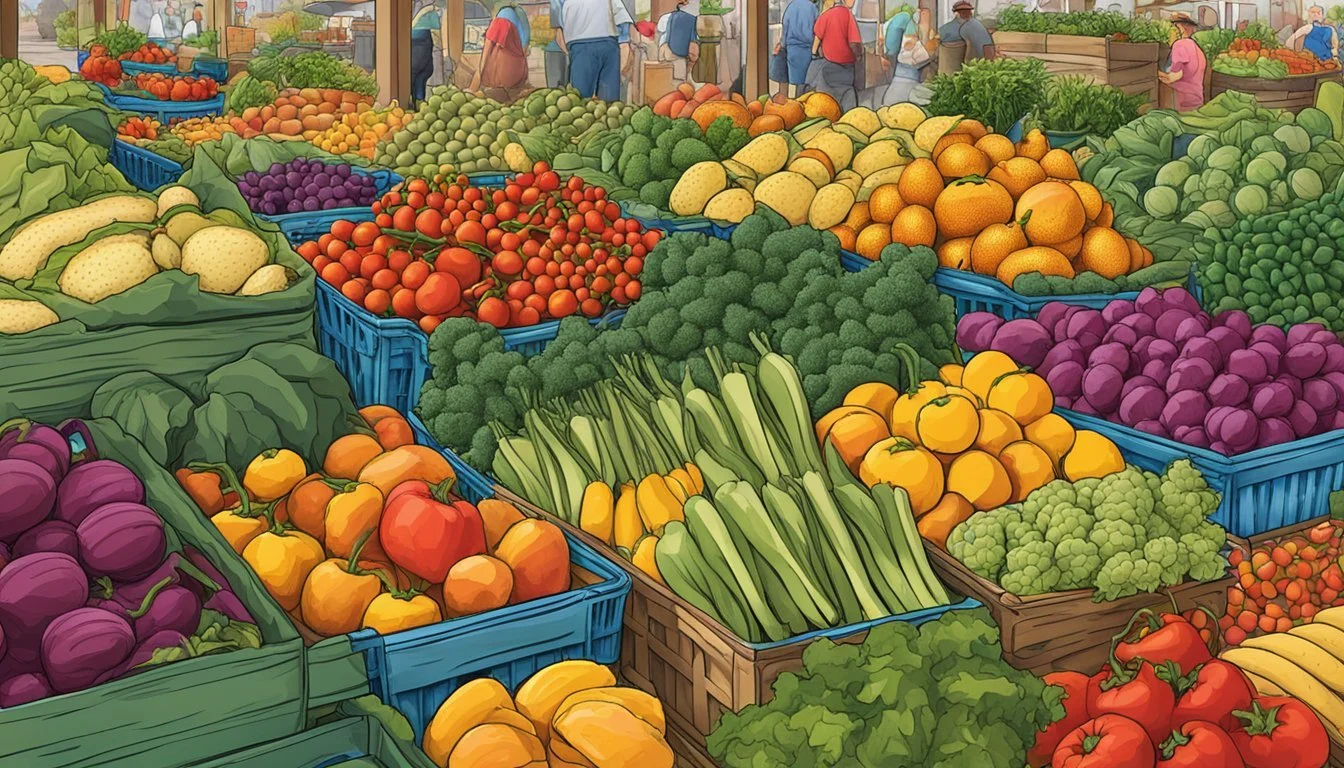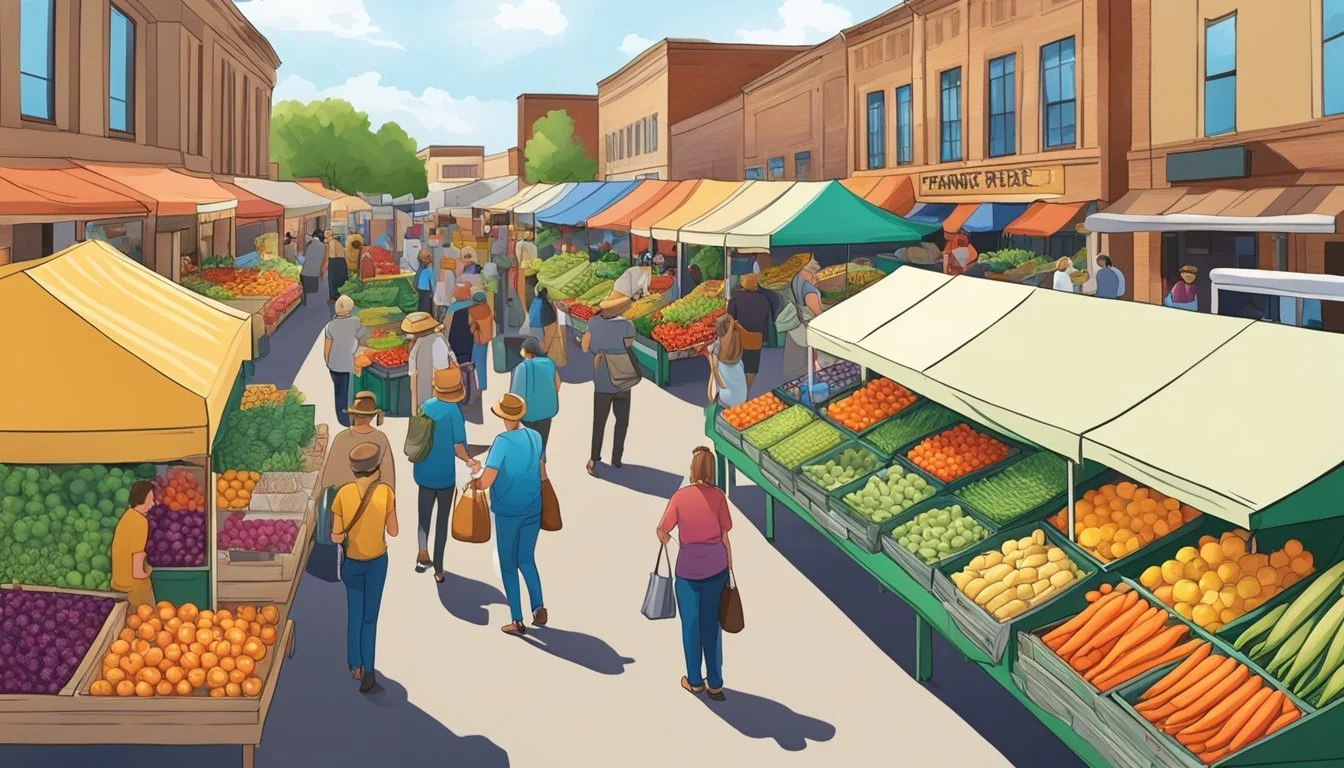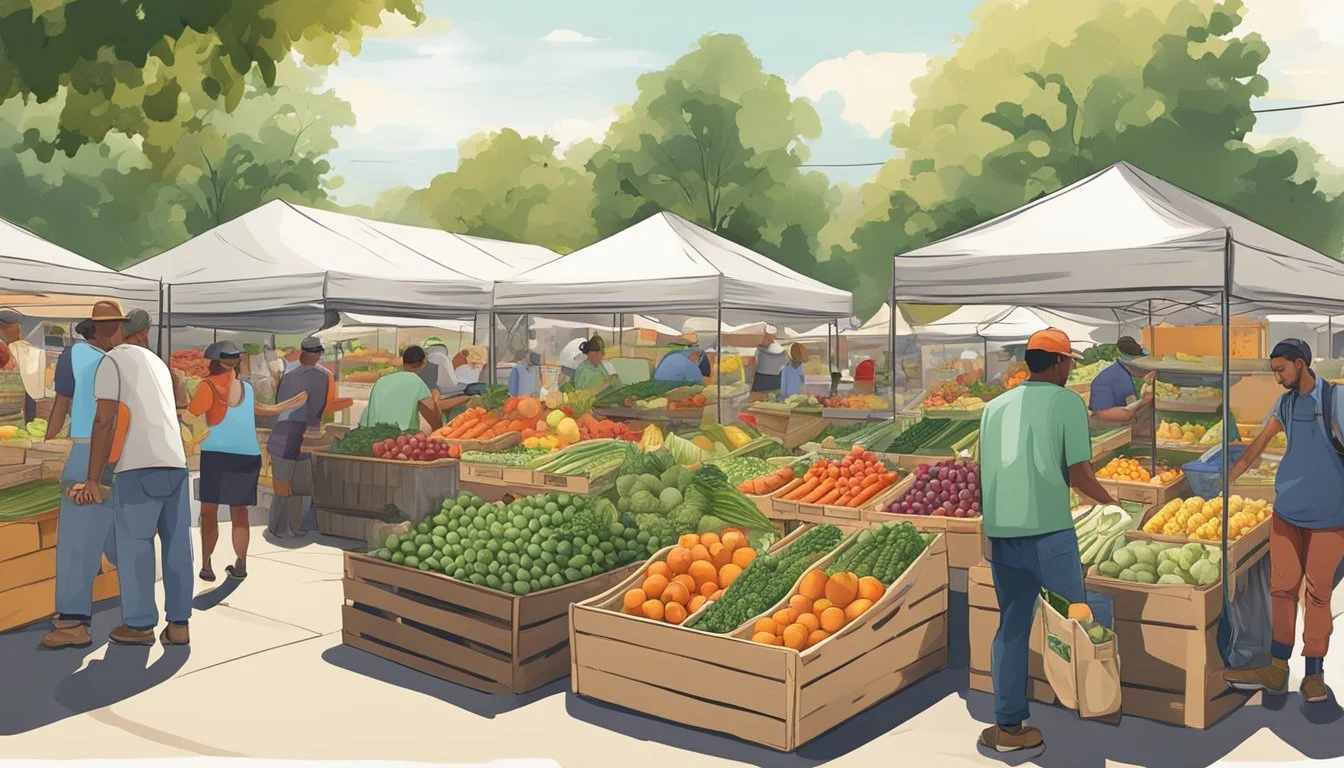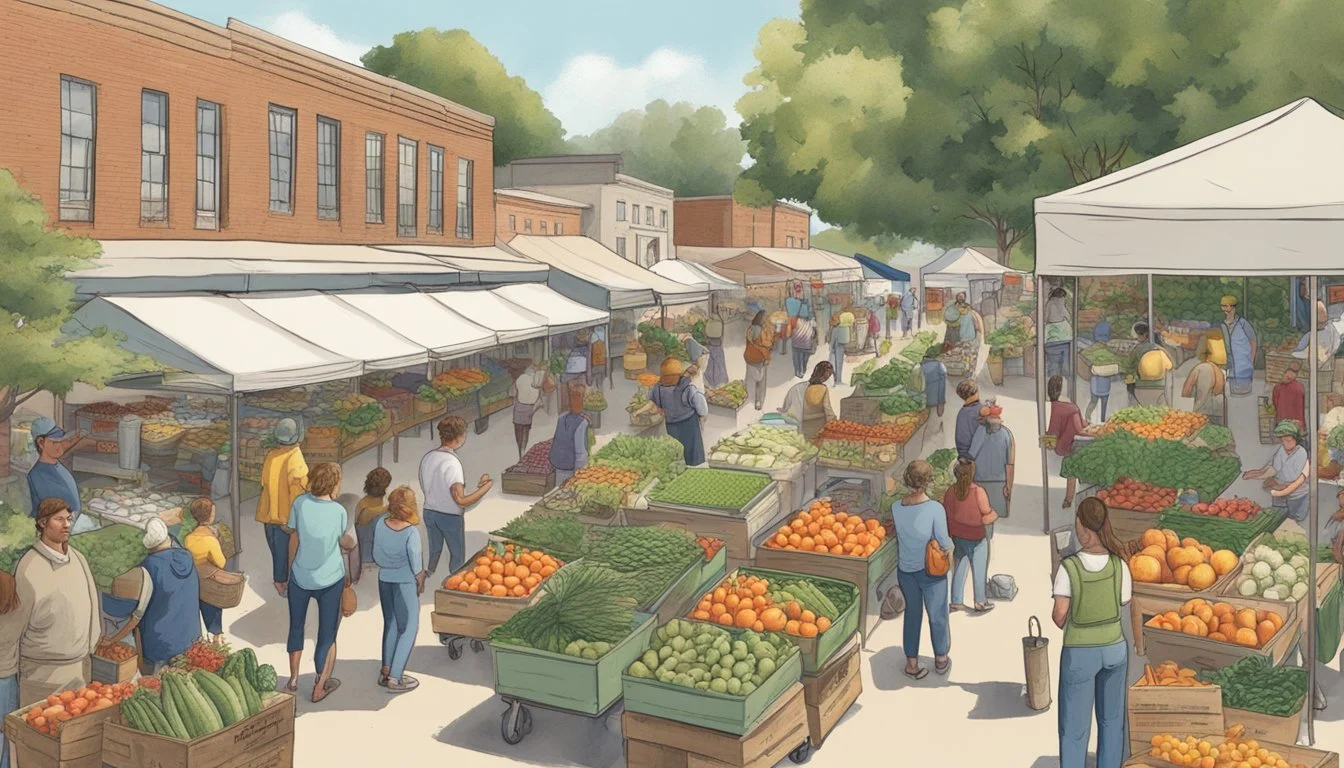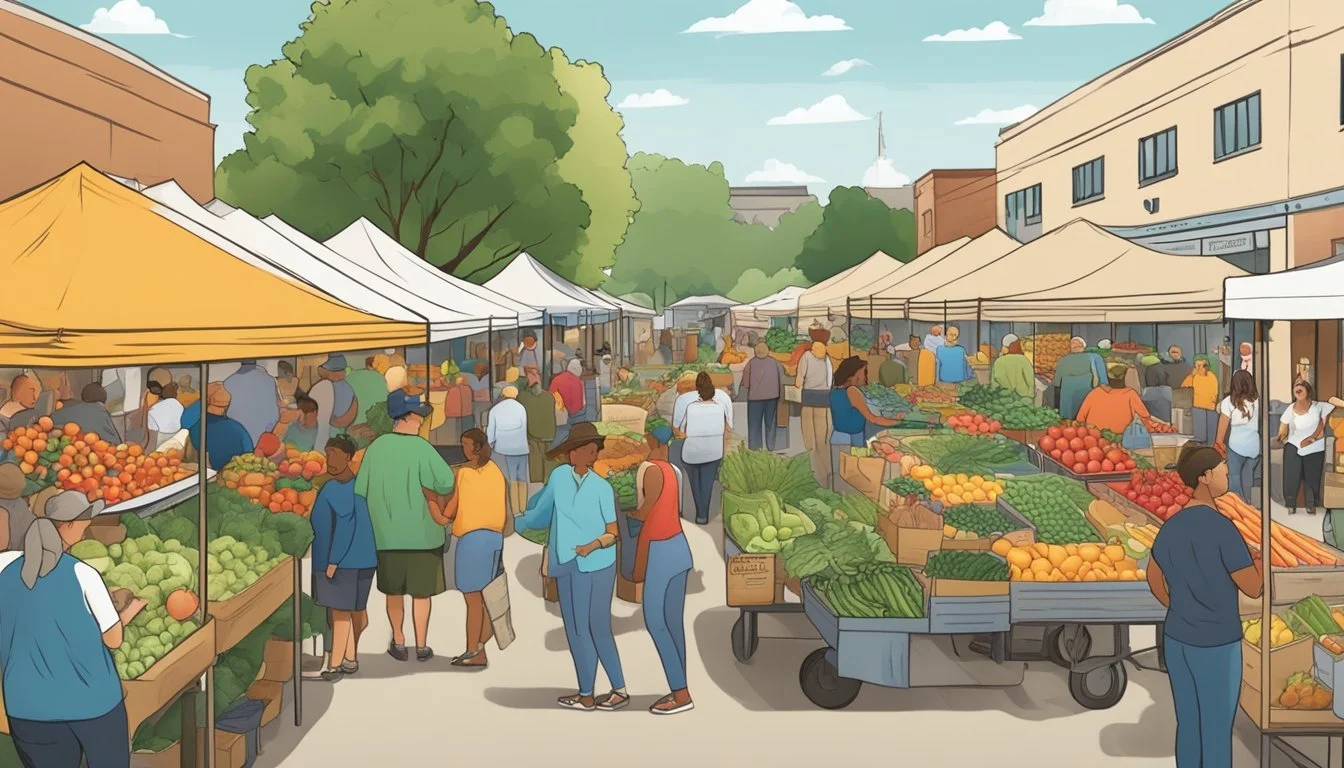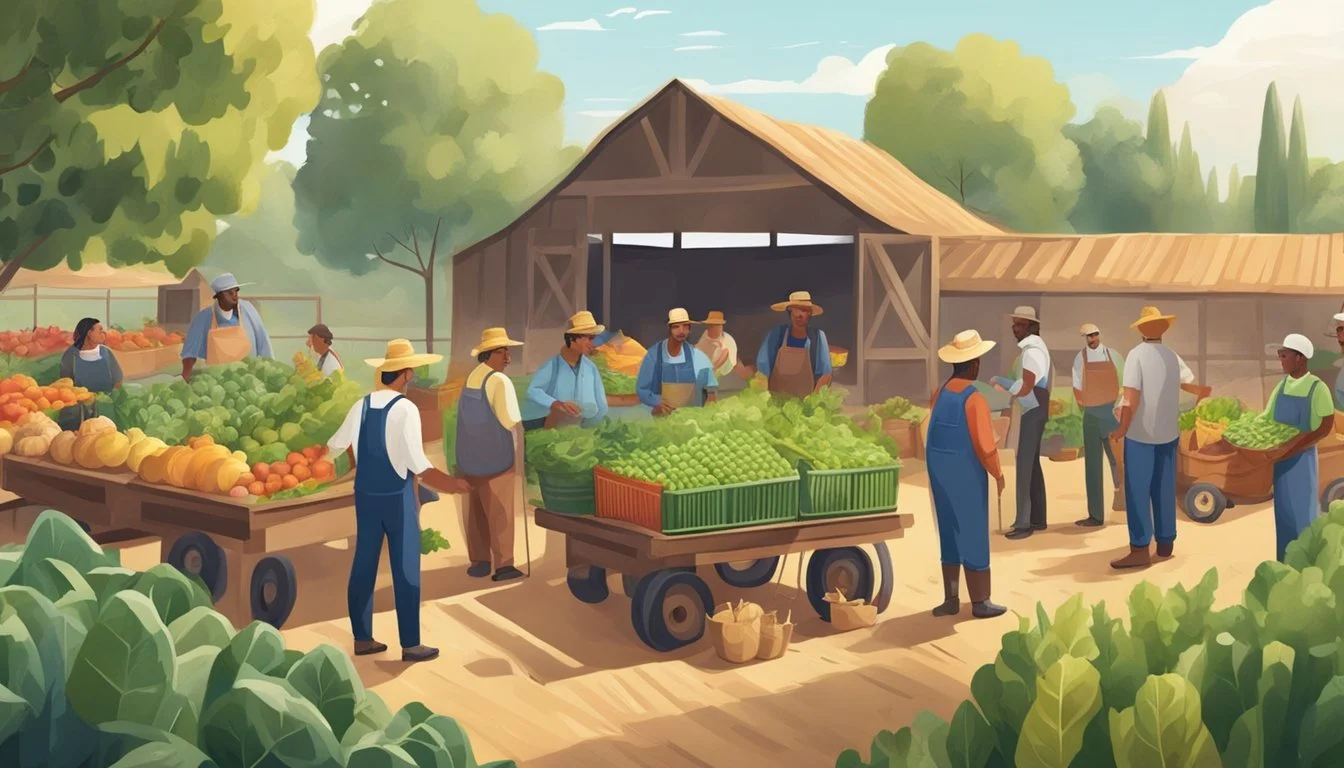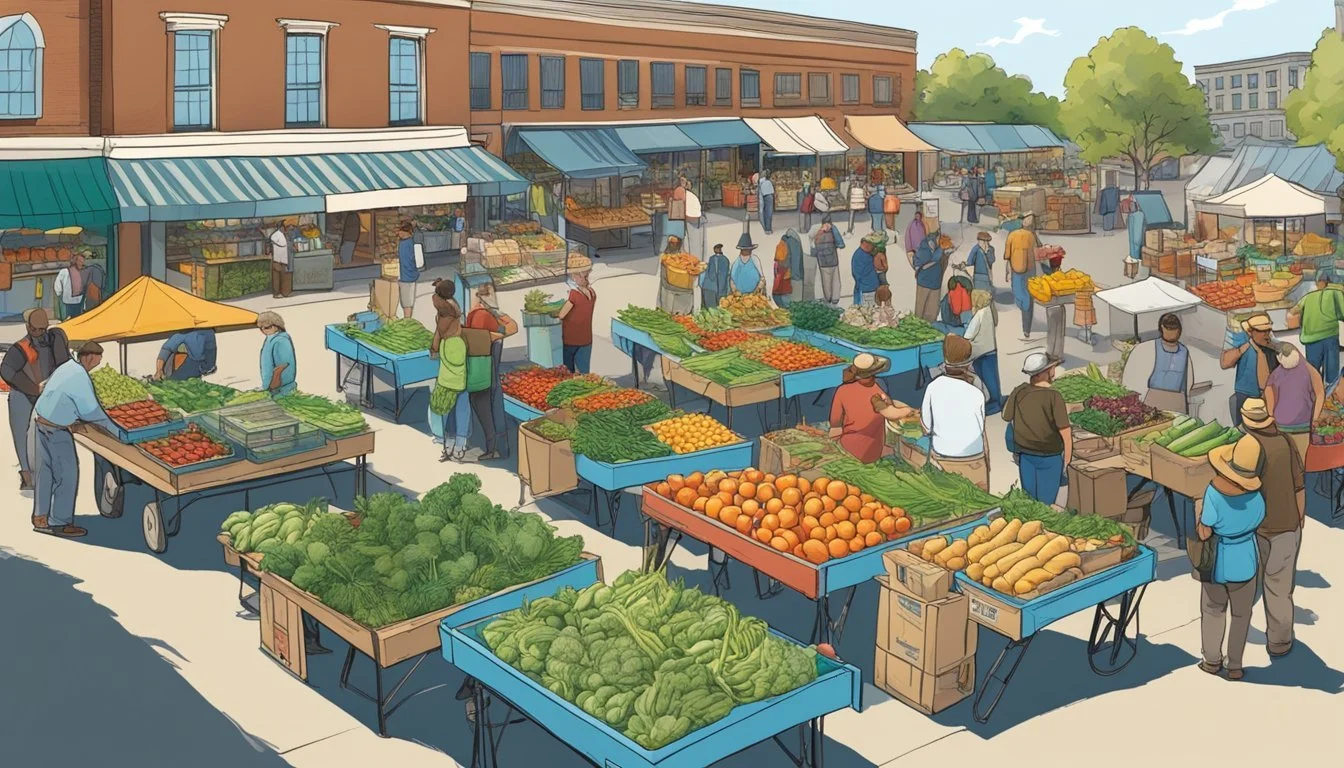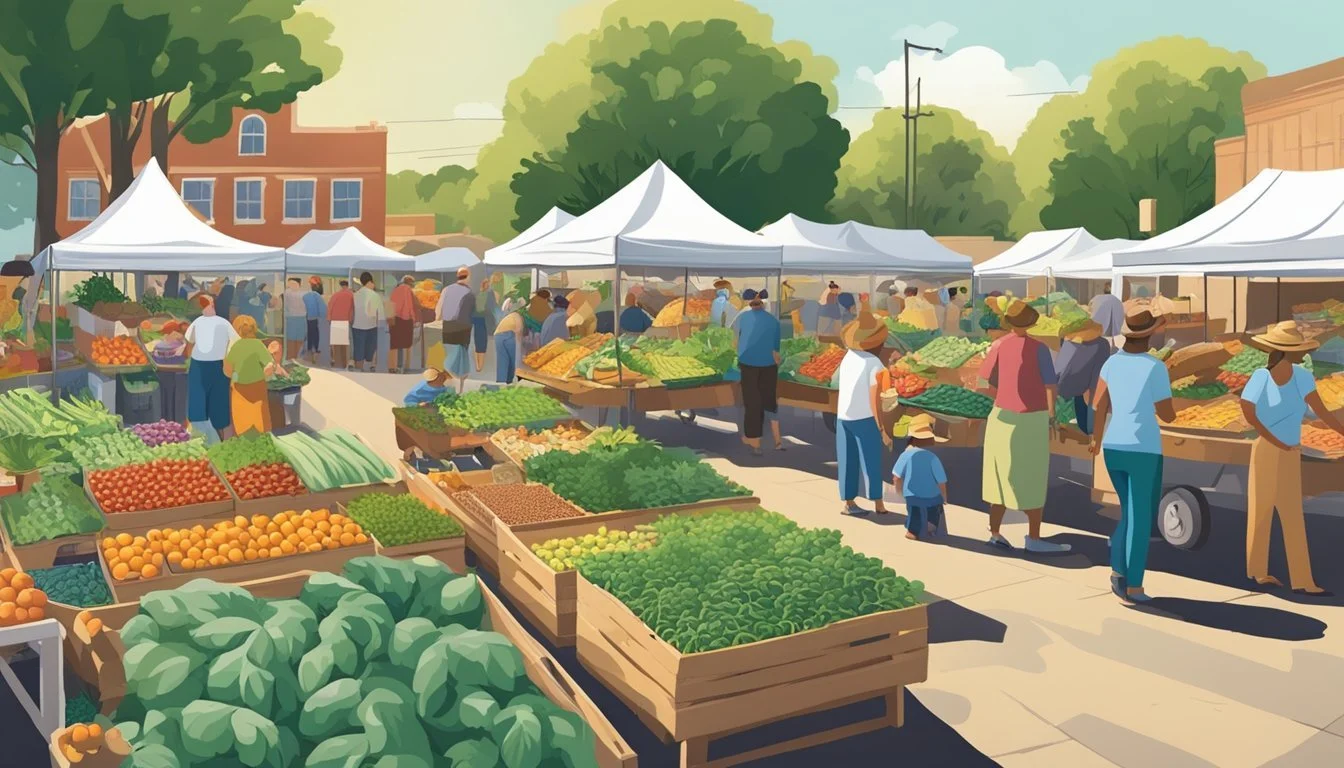Community Supported Agriculture (CSA) in Topeka, KS
A Guide to Local Farm Shares
Community Supported Agriculture, widely known as CSA, is a model of food production and distribution that directly connects farmers and consumers. In Topeka, KS, this concept has gained traction, offering residents the opportunity to purchase seasonal 'shares' from local farms. Subscribers to a CSA receive regular deliveries of fresh produce, which may include a variety of vegetables, herbs, and occasionally small fruits or other farm products, depending on the offerings of the particular CSA.
The benefits of joining a CSA in Topeka extend beyond simply obtaining fresh, locally-grown food. It fosters a closer relationship between consumers and their food sources, encouraging a community-centric approach to agriculture. By supporting CSAs, residents of Topeka are not only receiving nutrient-rich, seasonal produce but also contributing to the sustainability and success of local farmers and ranchers.
Moreover, the CSA model in Topeka helps boost the local economy and maintains agricultural diversity in the region. With various options available, including organic farms like Moon on the Meadow and initiatives like the Kansas Senior Farmers Market Nutrition Program, Topeka residents can engage in Community Supported Agriculture in ways that align with their values and the needs of the local community.
The Concept of CSA
Community Supported Agriculture (CSA) is a collaborative model that bridges the gap between local farmers and community members through a shared commitment to sustainable agriculture and food distribution.
What Is CSA?
CSA operates on a subscription basis, allowing individuals to become shareholders of a farm's harvest in advance. Shareholders commit to support local farms, and in return, they periodically receive a portion of the farm's produce throughout the growing season. This mutually beneficial setup delivers fresh, local food systems directly to consumers, while providing growers with a stable revenue stream.
Key Elements of CSA:
Subscription: Prepaid commitment by shareholders
Shareholders: Individuals or families investing in their local farm
Local Food: Harvest is distributed within a close community range
History and Evolution
CSA began its journey in the United States in 1985, when Robyn Van En introduced the concept at Indian Line Farm in South Egremont, Massachusetts. She took inspiration from similar models that existed in Europe. Since its inception, CSA has expanded significantly, reflected in the growth of Indian Line Farm's membership from 30 to 150 shares in just four years.
CSAs have charted a notable rise, with the U.S. Department of Agriculture reporting:
7,244 farms in the United States using the CSA model in 2020
$225 million accounted for CSA's contribution to the direct-to-consumer sales by farms
Today's CSA continues to evolve, adapting to new challenges and opportunities within local and regional food systems. Its inception marked a shift towards a more community-oriented approach to agriculture, showing a trend that places value on the connection between producer and consumer.
Benefits of Joining a CSA
Joining a Community Supported Agriculture (CSA) offers numerous advantages for members in Topeka, KS. They enjoy access to fresh produce, support the local agriculture sector, and contribute to a sustainable food system.
Fresh and Nutritious Produce
CSA members receive weekly shares of produce that are often picked within 24 hours of distribution, ensuring each item is at its peak of freshness and flavor. This immediacy from farm to table not only enhances taste but also preserves the nutritional content of the produce. In Topeka, members can experience a diverse array of vegetables and fruits reflective of the growing season.
Supporting Local Farmers
When you join a CSA, you directly support local farmers and small businesses. This Infuses the local economy with vital capital, helps farmers in Topeka plan and budget for their season, and mitigates marketing risks. By pre-purchasing a share of the harvest, members provide financial stability for local farmers, allowing them to focus on environmentally sound farming practices and high-quality food production.
Environmental Advantages
CSAs in Topeka promote a smaller carbon footprint as food travels much shorter distances from farm to consumer. This model encourages sustainable, often organic farming methods which have a positive impact on local ecosystems. Moreover, by engaging with a CSA, both farmers and consumers reduce packaging waste and resource-intensive distribution systems, contributing to a healthier environment.
CSA Operations in Topeka
Community Supported Agriculture (CSA) in Topeka connects consumers directly with local farms, offering shares of seasonal produce, and fostering a community-centered food system.
How CSAs Function
CSAs in Topeka operate on a subscription basis, where individuals purchase a "share" of the harvest from local farms such as Moon on the Meadow and Rolling Prairie Farmers Alliance. Subscribers typically receive a weekly or bi-weekly delivery of fresh produce throughout the growing season. The CSA model supports local farms by providing them with upfront capital and ensuring a guaranteed market for their crops.
Seasonal Activities
Growing Season: The typical growing season in Topeka lasts from early spring to late fall. During this time, CSA members can expect a diverse array of seasonal produce. Farms actively adjust their crop selections to ensure a varied distribution over the months. Delivery to subscribers is often complemented by available pickups at local farmers markets.
Spring: Cool-weather crops such as lettuce and peas.
Summer: A variety of fruits and vegetables including tomatoes and berries.
Autumn: Hardy stocks like squash and root vegetables.
Wakarusa Valley Farm Spotlight
Wakarusa Valley Farm is a noteworthy CSA provider in Topeka. They emphasize organic farming practices and offer a wide range of vegetables, herbs, and small fruits. Subscribers benefit from the farm's commitment to sustainable agriculture and can pick up their shares at designated local spots, including the Downtown Lawrence Farmers' Market. Wakarusa Valley Farm exemplifies the integration of CSAs with community markets, facilitating direct access to fresh, locally-sourced food.
Types of Products Offered
In Topeka, KS, Community Supported Agriculture (CSA) programs offer a diverse array of local produce and farm products, providing seasonal availability directly to the community.
Vegetables and Fruits
CSAs in Topeka typically include a wide variety of vegetables such as tomatoes, peppers, lettuces, and root crops. Fruit options, depending on the season, might range from strawberries and apples to melons, all grown with an emphasis on organic methods.
Eggs, Meat, and Cheese
Many CSA programs extend beyond produce, offering eggs from free-range hens and a selection of meat products including beef, pork, and chicken. For dairy lovers, local cheese varieties crafted from the milk of cows or goats in the area can often be part of a CSA share.
Additional Offerings
Some Topeka CSAs surprise their subscribers with additional offerings. These may include honey from local apiaries, a variety of flowers for a vibrant household, and occasionally specialty items like homemade jams or herbal products.
Membership and Subscription Details
Community Supported Agriculture in Topeka, Kansas, offers local residents an opportunity to subscribe to a share of the harvest from local farms. Here, individuals can pre-purchase produce for a season, ensuring fresh, local food while supporting farmers directly.
Understanding the CSA Model
The CSA model bridges the gap between local farmers and consumers. A consumer subscribes for a season to receive regular distributions of the farm's harvest, typically on a weekly basis. These subscriptions are known as "shares" and can vary in size and content, often inclusive of vegetables, herbs, and even small fruits. By purchasing a share, members directly support the farming process, share in the risks and rewards of agricultural production, and foster a closer relationship with their food source.
Pricing and Payment Plans
CSA shares in Topeka are priced based on the variety and quantity of produce provided. Farmers generally offer different tiers of shares to cater to various household sizes and needs. Payment plans may vary by farm, with some requiring full payment upfront to help cover the initial costs of the season, while others may offer installment plans. Members should be aware that while payment supports the farm's operation, it does not equate to a guarantee of produce due to the inherent risks of farming.
Share Size Price Range Payment Options Small (1-2 people) $X - $Y Full / Installment Medium (3-4 people) $A - $B Full / Installment Large (5+ people) $C - $D Full / Installment
Commitment and Expectations
When joining a CSA in Topeka, members commit to the duration of a growing season, which can span from May to October. They should expect to share in both the bounties and scarcities that arise from the natural cycles of farming. This commitment implies understanding the limitations of seasonal growing and accepting the variety of produce each week. CSA members form a relationship with the farm, and honest communication about produce expectations is encouraged to maintain a transparent and understanding community.
Enhancing CSA Experience
To maximize the benefits of Community Supported Agriculture in Topeka, KS, members can deepen their involvement through meaningful connections and educational opportunities.
Building Relationships with Farmers
Members can enrich their CSA experience by cultivating personal bonds with the farmers who provide their food. Frequent visits to local farms offer insights into the farming process and contribute to a more transparent food system. This relationship not only instills a sense of trust and community but also allows customers to provide direct feedback, which can influence the variety of vegetables, herbs, and small fruits grown.
Tips for Members:
Schedule farm visits during seasonal events.
Engage in conversations at farmers markets about growing practices.
Subscribe to newsletters for updates on farm happenings.
Community Events and Education
CSAs in Topeka can serve as hubs for community events and education, strengthening the local food system. Through workshops and group activities, members learn about sustainable farming, preparing meals from their CSA shares, and the nutritional value of their food.
Community Involvement:
Seasonal cooking classes using produce from the CSA shares.
Newsletters providing recipes, tips, and updates.
Volunteer days for members to work alongside farmers.
By integrating these approaches, Community Supported Agriculture in Topeka can foster not only a robust local food culture but also a strong, interconnected community.
Challenges and Considerations
Before joining a CSA in Topeka, KS, members should be aware of its unique challenges and considerations. Identifying and addressing these factors is crucial for a successful CSA experience.
Overcoming Limitations
Inherent limitations in community-supported agriculture include variability in crop yields and the need for member flexibility. CSAs operate on the principle of shared risk and reward, meaning that members must be prepared for fluctuations in the variety and quantity of produce they receive. Adapting recipes and meal planning according to the seasonal harvest can mitigate the impact of such variability.
Weather Impacts: Crop availability is directly influenced by weather conditions, which can be unpredictable.
Limited Selection: Unlike traditional grocery stores, the CSA offers a more narrow scope of produce, focused mainly on what is in season.
To overcome these challenges, members can:
Embrace Seasonal Eating: This means adjusting diets to the seasonal availability of fruits and vegetables.
Learn Preservation Techniques: Canning, freezing, and drying are methods to preserve surplus produce.
Support Farm Efficiency: Engaging in cooperative behaviors, such as timely pick-ups and providing feedback, aids in farm logistics.
Tips for New CSA Members
New CSA members might face a learning curve when it comes to navigating the world of vegetable subscription services. Here are some targeted tips for those interested in joining a CSA:
Understand the Model: Recognize that a CSA is a cooperative effort and differs from conventional grocery shopping.
Communication: Maintain open communication with the CSA farmer to understand the expected seasonal offerings and voice preferences or concerns.
Tips for Success:
Be flexible in your eating habits.
Utilize community resources, such as recipe exchanges with other members.
Get involved in the CSA community to enhance the cooperative spirit.
By acknowledging the challenges and considering these practical tips, members can cultivate a rewarding relationship with their local CSA and its community.
Future of CSA in Topeka
Community Supported Agriculture (CSA) models in Topeka, KS are poised for significant growth, with lasting local impacts anticipated through sustainable food practices and stronger community relationships.
Growth and Expansion
Topeka's CSA programs are expected to grow in both size and number, suggesting a trend toward more diverse offerings to consumers throughout the seasons. As sustainable farming practices gain momentum, farmers are likely to cultivate a greater variety of small-scale, local produce. This expansion may also see an increase in year-round supply, adapting to Kansas's seasons through the use of innovative farming techniques.
Seasonal Flexibility: CSA programs can adapt seasonally, providing fresh produce year-round.
Diversity of Produce: Expanding the variety of crops to include lesser-known, heirloom, or ethnic varieties.
Local Impact
The impact of CSA on the Topeka community has multiple facets. As consumers foster direct relationships with farmers, they become more invested in the local food system and sustainability efforts. The economic boost from consumers prioritizing CSA shares supports the viability of small local farms.
Sustainable Food Choices: Encouraging consumption of fresh, locally-sourced foods.
Community Relationships: Strengthening bonds between Topeka residents and local farmers.
By maintaining strong relationships and focusing on ecological farming, CSAs in Topeka are setting a course for a robust future that benefits both the local economy and the environment.
Conclusion
Community Supported Agriculture (CSA) in Topeka, KS, harnesses a partnership between local farms and community members. Through pre-season financial commitments, consumers secure a portion of the harvest, fostering a symbiotic relationship with growers.
CSA benefits include:
Access to fresh produce directly from local farms.
Potential to save money due to the shared risk and reduced marketing costs.
Strengthening community ties through direct involvement with food sources.
Local farms gain a reliable market for their crops, essential for financial planning and operational stability. They also benefit from immediate feedback, allowing for a responsive approach to community needs.
Consumers enjoy the fruits of agriculture without excessive transportation, ensuring peak freshness and flavor. Additionally, they often gain insights into sustainable farming practices and contribute to local economies.
In Topeka, CSA models have proven their value by promoting ecological resilience and nurturing communal bonds. These arrangements are not just transactions; they represent a conscious choice towards a more self-sufficient and connected society.
In conclusion, Topeka's embrace of CSA reflects a growing movement towards agricultural sustainability and social innovation. By supporting local farms, community members play an integral role in the narrative of their food, from seed to table.

